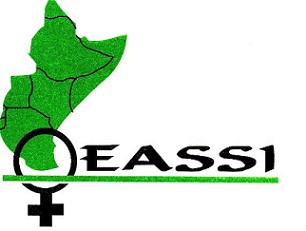
The Eastern African Sub-Regional Support Initiative for the Advancement of Women (EASSI)
Search Open Yearbook
This information is part of the Open Yearbook, a free service of UIA's subscription-based Yearbook of International Organizations (YBIO). It includes profiles of non-profit organizations working worldwide in all fields of activity. The information contained in the profiles and search functionality of this free service are limited.
The full-featured Yearbook of International Organizations (YBIO) includes over 77,500 organization profiles, additional information in the profiles, sophisticated search functionality and data export. For more information about YBIO, please click here or contact us.
The UIA is a leading provider of information about international non-profit organizations. The aim of the Open Yearbook is to promote the activities of international non-governmental organizations (INGOs) and intergovernmental organizations (IGOs).
Contact Details
More detailed data available with paid subscription.
Founded
1996
History
Available with paid subscription only.Aims
Advance the rights of women and promote gender equality and equity; inventorize, consolidate and facilitate existing and emerging initiatives and recommended actions in the African and Beijing Platforms for Action; contribute towards the conceptualization, articulation and mainstreaming of gender issues in the Eastern African Sub region; provide a framework and establish linkages for monitoring commitments made in the Regional and Global Platforms for Action and ensuring accountability of Governments, Nongovernmental organizations (NGOs), International Financial Institutions (IFIs) and donor agencies to women and men of the Eastern African Sub-region; facilitate the effective participation of women and men, as well as mainstreaming of gender issues in the sub-regional integration processes such as the East Africa Community (EAC), the Intergovernmental Authority on Development (IGAD) and Common Market for Eastern and Southern Africa (COMESA).
Activities
Available with paid subscription only.Structure
Available with paid subscription only.Languages
Available with paid subscription only.Staff
Available with paid subscription only.Finance
Available with paid subscription only.Registrations
Available with paid subscription only.Consultative Status
Available with paid subscription only.Relations with Inter-Governmental Organizations
- Links with: Commonwealth Foundation (CF)
- Links with: Commonwealth Gender Plan of Action Monitoring Group (CGPMG)
- Links with: ECA Office for North Africa
- Links with: Intergovernmental Authority on Development (IGAD)
- Links with: Regional Centre on Small Arms and Light Weapons in the Great Lakes Region, the Horn of Africa and Bordering States (RECSA)
Relations with Non-Governmental Organizations
- Links with: African Women's Development and Communication Network (FEMNET)
- Member of: Association for Women's Rights in Development (AWID)
- Member of: Control Arms
- Links with: East African Women in Business Platform (EAWiBP)
- Member of: International Action Network on Small Arms (IANSA)
- Links with: Isis Women's International Cross Cultural Exchange (ISIS-WICCE)
- Links with: NGO/CSW/Africa
- Links with: TradeMark East Africa (TMEA)
- Links with: World Association for Christian Communication (WACC)
Publications
Available with paid subscription only.Members
Available with paid subscription only.Active Areas & Regions
Available with paid subscription only.Type I Classification
Available with paid subscription only.Subjects *
UN Sustainable Development Goals **
UIA Org ID
XF7038
** UN SDGs are linked to the subject classification.
← return to your search page to find additional profiles.
UIA allows users to access and make use of the information contained in its Databases for the user’s internal use and evaluation purposes only. A user may not re-package, compile, re-distribute or re-use any or all of the UIA Databases or the data* contained therein without prior permission from the UIA.
Data from database resources may not be extracted or downloaded in bulk using automated scripts or other external software tools not provided within the database resources themselves. If your research project or use of a database resource will involve the extraction of large amounts of text or data from a database resource, please contact us for a customized solution.
UIA reserves the right to block access for abusive use of the Database.
* Data shall mean any data and information available in the Database including but not limited to: raw data, numbers, images, names and contact information, logos, text, keywords, and links.